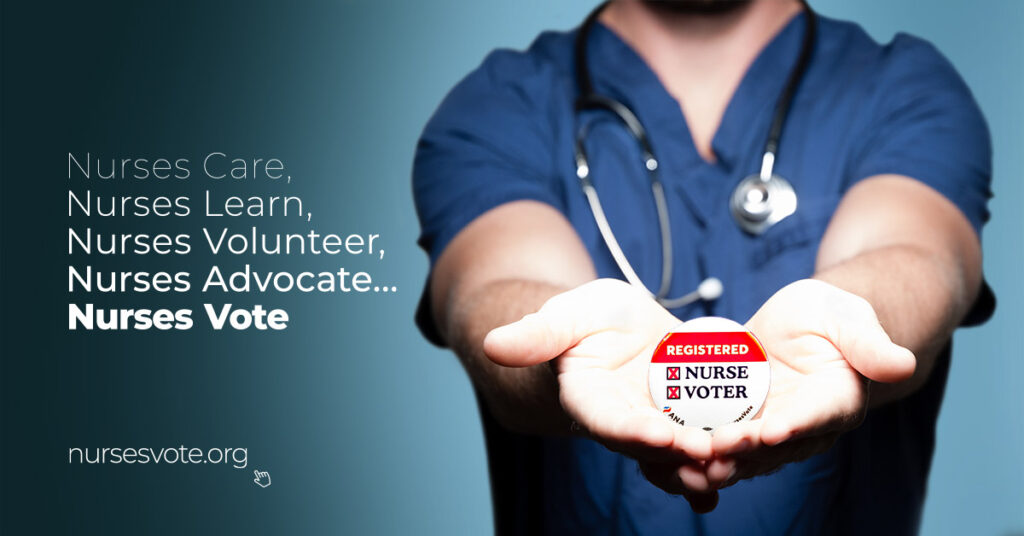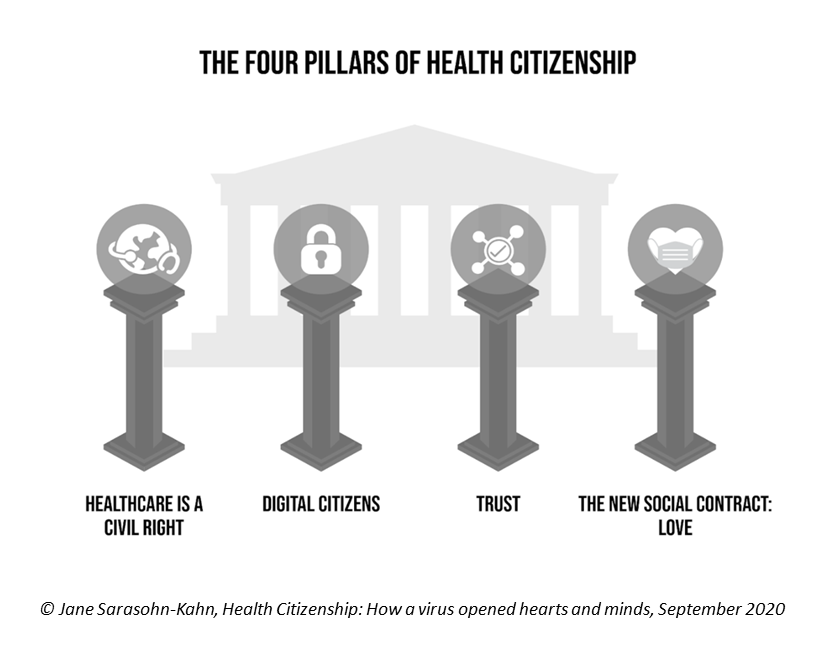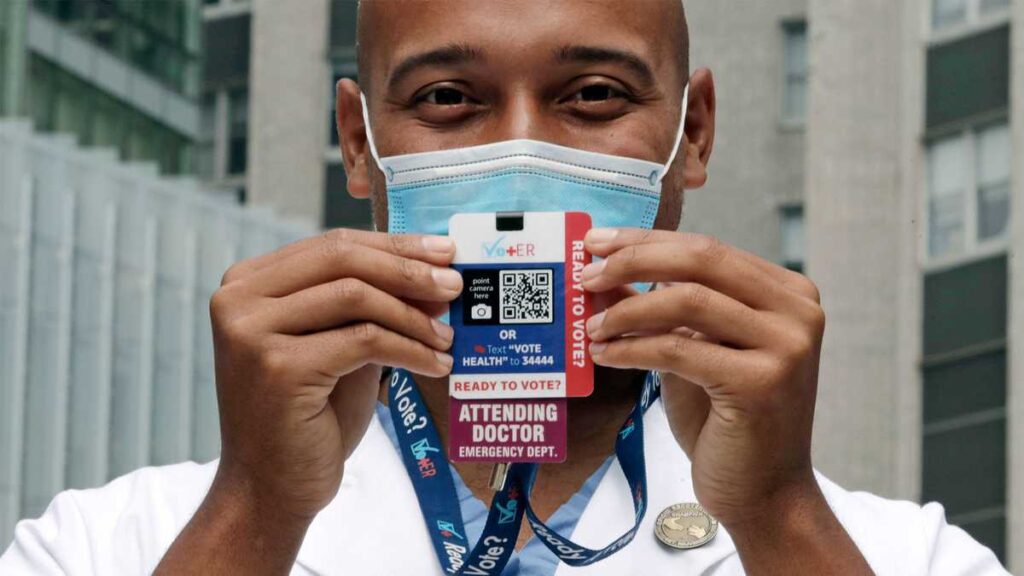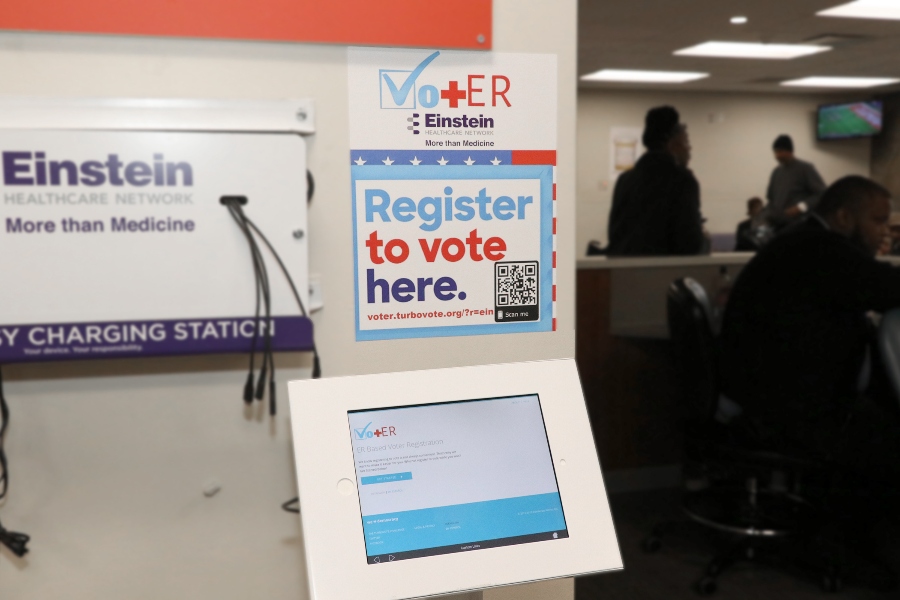Until 2016, physicians’ voting rates in U.S. elections had not changed since the late 1970s.
Then in 2018, two years into President Donald Trump’s four-year term, the mid-term elections drove U.S. voters to the election polls…including health care providers.
Based on the volume and intensity of medical professional societies’ editorials on the 2020 Presidential Election, we may be in an inflection-curve moment for greater clinician engagement in politics as doctors and nurses take claim of their health citizenship. A good current example of this is an essay published in the AMA’s website asserting, “Why it’s okay for doctors to ask their patients about voting.” This publication is part of an organized effort on AMA’s part to address and alleviate health inequity, especially evidence in the age of the coronavirus pandemic.
 U.S. nurses, too, have demonstrably increased their political activism in this year’s election. The Nurses Vote campaign is part of the American Nurses Association’s effort to educate patients to advocate for key health care issues top-of-mind for nurses – among them, COVID-19 treatment, clinician burnout and resilience, health system transformation, and workplace violence, among other priorities.
U.S. nurses, too, have demonstrably increased their political activism in this year’s election. The Nurses Vote campaign is part of the American Nurses Association’s effort to educate patients to advocate for key health care issues top-of-mind for nurses – among them, COVID-19 treatment, clinician burnout and resilience, health system transformation, and workplace violence, among other priorities.
In 2016, the Annals of Internal Medicine published an essay on Will Physicians Vote? Among factors for physicians’ lower-than-average-civilian voting rates in 2016 were doctors’ placing lower social value on voting compared with clinical responsibilities, long work hours, overnight call, and lack of clinical coverage. Another challenge depressing physician engagement in voting could also be a generally lower interest in politics, Dr. Eitan Hersh was quoted in Medscape regarding the Annals article.
One of the two authors of the Annals essay, Dr. David Grande, told Medscape, “Physicians should try to make participation in the political process and public debates part of our professional lives. Elections and decisions by policymakers have a profound influence on the system physicians practice in and the opportunities patients have to access and afford care.”
Innate tendencies may also play a role, according to Eitan Hersh, PhD, an assistant professor of political science at Yale University, New Haven, Connecticut, who was not involved in the article.
“The main reason why doctors don’t vote as much as lawyers is that general interest in politics is just lower among physicians. People who choose fields like law enjoy the political process and being part of it. People who choose fields like medicine are not particularly interested in politics,” Dr Hersh told Medscape Medical News.
 But health care drove millions of voters to the polls in the 2018 U.S. mid-term elections. With President Trump’s Presidential campaign battle cry of “repeal and replace,” more voters-as-patients flooded to their local polling places to express their concerns for holding onto health care access in November 2018.
But health care drove millions of voters to the polls in the 2018 U.S. mid-term elections. With President Trump’s Presidential campaign battle cry of “repeal and replace,” more voters-as-patients flooded to their local polling places to express their concerns for holding onto health care access in November 2018.
This was a milestone marker for U.S. health citizenship, where patients and caregivers, concerned about holding onto their health benefits, voted in a blue wave in localities that President Trump turned “red” in 2016.
Increasingly, physicians and nurses, both older and younger cohorts of them, have been speaking out in medical media about health care coverage, costs, quality, and health equity.
In the wake of the pandemic, some doctors and nurses in the U.S. have added a new prescription to their patients’ therapeutic regimens: voting. I explain this phenomenon in my book, Health Citizenship: How a virus opened up hearts and minds.
“As the threat of COVID-19 continued to spread through the U.S. in the spring and summer of 2020, electing to vote in-person at state primary election polling places became a choice, for some people, of exposing oneself to the virus or exercising one’s right to vote,” I wrote in the last chapter of the book.
 I offered the example of emergency physician Dr. Alister Martin, who at Mass General Hospital, set up a kiosk featuring an iPad and hand sanitizer to enable patients to register to vote.
I offered the example of emergency physician Dr. Alister Martin, who at Mass General Hospital, set up a kiosk featuring an iPad and hand sanitizer to enable patients to register to vote.
Thus began the VotER project, whose tagline is, “Healing our broken health system – one vote at a time.”
‘“There will be a time where, above the din of suffering we ask, ‘How can we use this to make something better of our situation?’” Dr. Martin was quoted in the New York Times. By August 2020, over 12,000 Healthy Democracy kits had been ordered and at least 70 health systems were using resources from the organization.
“VotER plays an important role in addressing the social determinants of health by meeting potential voters where they are and supporting them in becoming more civically engaged,” Bill Ryan, Assistant Vice President of Government Relations at Einstein Medical Center based in North Philadelphia, said in support of the program.
As Jonathan Kusner, a med student who co-chairs Med Out the Vote, explained, “Just as we ask people to behaviorally modify their diet or their exercise or their health, we could ask people to modify their civics.”
Here’s a wonderful interview with Dr. Alister Martin of VotER conducted with the AMA Journal of Ethics…
Health Populi’s Hot Points: Nurses, doctors, and pharmacists are perennially the three most honest and ethical professions in America according to U.S. adults annually found in the Gallup poll. As trusted touchpoints in peoples’ lives, clinical front-line workers who advocate for patients to vote are key stakeholder in peoples’ health citizenship. This is true, as well, for clinicians who are supporting each other’s political engagement, as the ANA nurses’ campaign is doing.
You can get a visceral sense of the rising tide of clinician political activism expressed through professional journals. Some of those that have particularly moved me in the health citizen ethos are the following essays from peer-reviewed publications:
New England Journal of Medicine – Dying in a Leadership Vacuum
The Lancet – The 2020 US election, we can choose a just future
Scientific American – Scientific American Endorses Joe Biden (the first time in the publication’s 175-year history to endorse a political candidate)
Nature – Why Nature Supports Joe Biden for U.S. President
And a fifth excellent analysis for good measure that takes a somewhat more balanced view….
Science – A Biden presidency could have a ‘remarkable’ impact on science policy – but also face hurdles





 Thank you FeedSpot for
Thank you FeedSpot for